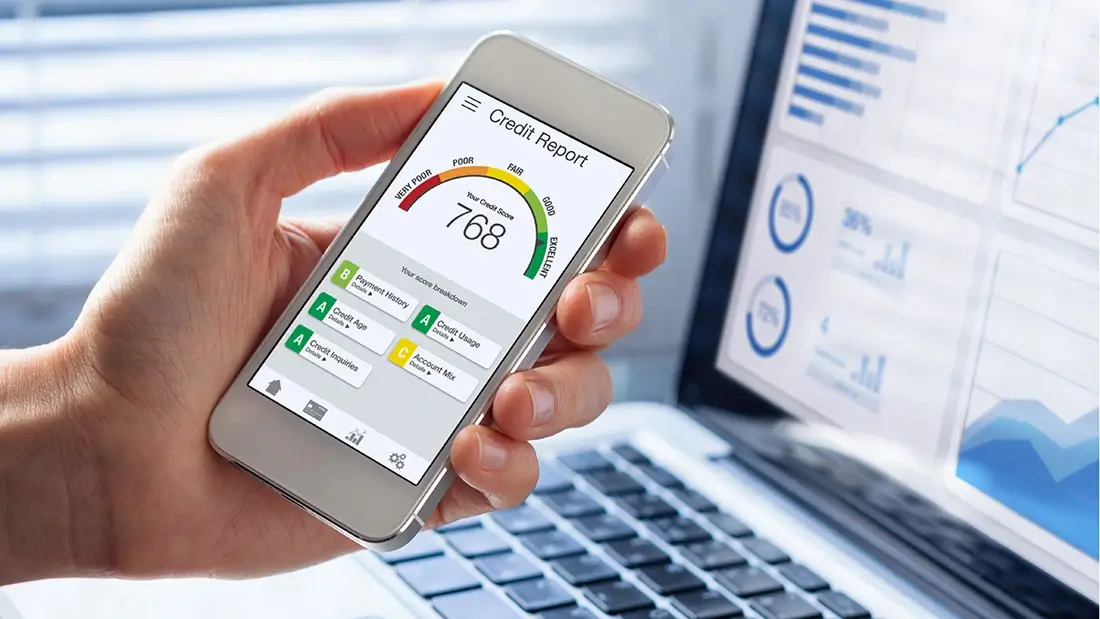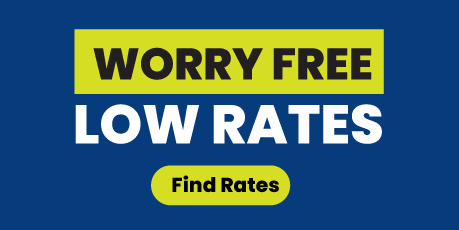What is a Good Credit Score and What Factors Affect it?


What is a Credit Report and Credit Score?
When an individual applies for a line of credit, mortgage, auto loan or credit card, the financial provider commonly referred to as the creditor will need to determine the applicant’s likelihood to repay the loan.
This risk assessment is known as underwriting. Underwriting involves the verification of income, and prior payment history along with current monthly debt obligations to determine eligibility for loan approval.
To simplify the underwriting process, the underwriter will use the applicant’s credit report to verify your open lines of credit, and your payment history.
What is a Credit Report?
A credit report will summarize an individual’s payment history, and use of available credit versus account balances, along with collections, judgements, and bankruptcy to determine the individuals credit score.
The 3 credit report providers, Experian, Transunion, and EquiFax provide credit reports for all individuals that are 18 years old or older. These credit reports are updated monthly to reflect current loan balances, payment history and any major credit event.
What information is reported on a Credit Report?
All three credit report agencies collect and organize the data they have into categories that are then reported on the individuals credit report.
What are the categories of data on a Credit Report?
For each tradeline or open line of credit, the credit report will report the following:
- High Credit Limit
- Loan Balance
- Date Opened
- Date Last Reported
- Payment History
Credit Report Categories are:
The data reported on consumer credit report will capture all important data points relating to a consumers overall credit rating. The objective is to provide a snap shot report of each consumer to aid the financial institution in assessing risk factors prior to approving any request for credit.
Below is a list of the types of data that is collected and categorized on each consumer credit report.
- Mortgages
- Installment loans
- Revolving lines of credit
- Collections
- Public Records
- Judgements
- Foreclosures
- Bankruptcies
- Credit Score
These credit reports summarize each individual’s risk of default by using their own algorithm to calculate a proprietary credit score that lenders can use to determine the applicant’s eligibility and ability to repay the loan.
How does the credit score help lenders determine loan approvals?
Credit scores help mortgage lenders and creditors asses the applicant’s probability to repay the loan issued by the creditor because they summarize the history of payment history, and open lines of credit and available credit into a simple number.
This credit score number helps lenders categorize and stereotype applicants based on data modeling to minimize the risk of loss.
Credit scores are presented as a three-digit number with a range of 300 to 850.
What is a Good Credit Score?
Credit scores are categorized into ranges that represent different levels of risk for lenders. The scale used to group credit score ranges into tiers is usually based off 20 or 40 point increments. Below we summarize the credit score ranges as excellent, good, average, and poor.
Grouped Credit Score Ranges:
- 800-850 is Excellent
- 760-799 is Very Good
- 720-759 is Good
- 680-719 is Average
- 640-719 is Average
- 580-639 is Fair
There are two main credit scoring models called FICO® Score 8 and VantageScore® 3.0, which the three main credit bureaus use to create credit reports.
While their ranges slightly vary from each other, both FICO® and VantageScore use the higher end of the scale to indicate better credit. Most lenders use one or both of these models to make their lending decisions.
What’s A Good FICO® Score?
The FICO® Score is the most popular credit scoring model used the three credit bureaus.
Fico Score® has a range of 300 to 850. An excellent FICO® Score is 800 to 850. A Fico® score of 720 – 799 is considered good to very good. For applicants of credit, the higher the credit score the lower the interest rate loan offers they will receive.
In 2022 the mean FICO® credit score for Americans was 716. This means that most Americans have a good credit rating. Therefore, as it relates to mortgage lending, it is safe to assume that there will not be any major housing market crashes due to poor credit ratings and payment histories from homeowners and borrowers of credit.
These borrowers are classified as “Average” 670-739 and rarely display any credit risk to lenders.
Fico® credit scores in the 580 – 669 range are classified as fair. This range represents applicants and borrowers who have a few minor credit events. These minimal derogatory events could be as simple as an over 30 days late payment or the use of all available credit provided on a credit card.
Individuals that fall with in this score range, may still be approved for lending but most likely with higher interest rates to cover the increased risk to the lender.
FICO® Scores that are below 580, indicates an elevated risk due to several major derogatory events such as multiple late payments over 30 days late, major credit events like foreclosure and bankruptcy.
Due to the elevated risk, most traditional lenders will not be willing to grant credit until the applicant improves their credit rating.
How can a Good Credit Score save you money?
A good credit score will provide financing terms with lower interest rates and fees. When applicants and borrowers maintain a near perfect credit rating, they can expect to pay less an interest over the life of the loan they are requesting.
Over a long period of time, this cost savings from having a high credit score will equate to several thousands of dollars that they save.
On average a 1% lower interest rate on a mortgage is equal to approximately 10% of the purchase price of a home that is saved.
Having access to affordable loans for real estate or auto loans, by maintaining a high credit rating, will help consumers maintain affordability and reduce their monthly payments.
Lower credit score borrowers are seen as high-risk borrower. This means that the borrowers will pay a higher interest rate and have a higher monthly payment on their loans.
Lower credit scores equal higher risk to lenders. Higher risk to lenders equals higher interest rates to the borrowers. The higher the interest rate the more you will pay compared to a low-risk high credit score borrower.
What Factors Affect Your Credit Score?
A great credit rating is essential to protect your wealth. Therefore, it is essential understand the components that are used to calculate credit scores. Here are some important factors used to determine credit scores.
Payment History
Your payment history plays a crucial role in your credit score, as 35% of your FICO® Score is contingent upon whether you have paid back time or not. Even the slightest hiccup can make all the difference; hence why this factor holds so much weight.
Account Balances
The amount of debt you carry is the second most influential factor influencing your credit score. Excessive quantity of debt may indicate that you’re overextended, or more likely to pay late or miss payments.
Credit Utilization
Credit utilization is the ratio of how much credit you are using compared to your total available credit limit. To maintain optimal financial health, it's advisable to keep your account balance under 35% of your available credit limit.
To find out your credit utilization rate, take the amount of debt you owe and divide it by the total available limit. Here's an illustration: let's suppose that your revolving balance is $2,500 with a maximum credit limit of $5,000 - this means that you have 50% utilization rate!
Time Duration of Credit History
Credit history time duration reflects how long your loan has been active, combining the oldest and most recent accounts as well as averaging out all of them.
Having a lengthy credit history shows lenders that you are dependable and trustworthy as a borrower, which often leads to higher scores on your credit reports. This is because having more data points from months or years of borrowing demonstrates that you can effectively manage debt.
On the contrary, if you have to many recently opened new accounts, it could be inferred that the applicant is under immediate financial stress and may have a high likelihood of default.
New Credit
The New credit section of your report examines all the new accounts, loans and inquiries that you have filed in the past year. Your record will feature how many requests for credit were made, when they took place as well as how long it has been since each account was initiated. Understanding this information is essential to getting a good score.
Open Credit Account Types
Demonstrating to lenders that you can handle a variety of credit accounts is critical in order to receive good terms and rates. Showing that your credit report reflects an array of types, such as mortgages, student loans, personal loans and credit cards, will prove this capacity for responsible repayment.
How to Get a Good Credit Score?
If you are looking for ways to improve your credit score, it's important to keep in mind that there is no easy solution. Although a credit score can decrease quickly, improving dedication and consistency over time. By adhering to our tips and taking small steps each day, however, you will eventually reach your goal!
Payment history has the most considerable effect on your credit score, so do whatever you can to make all payments in a timely fashion. The longer and more consistent your record of punctual payments is, the higher your rating will increase.
If this is proving to be too difficult for you, assess ways that you can adjust your budget so as to prioritize these obligations above other costs. At the very least ensure that even minimum amounts are paid off before their due date!
Utilizing the next steps, you can lower your debt to maintain a credit utilization rate at around 30%. When your debt is low, it suggests that there's room for more additional loans. Making payments on time and paying above the minimum due are great ways to begin decreasing your debts.
Additionally, cutting down balances while increasing your credit limit will also help keep a low credit utilization ratio too!
To establish a positive repayment record and diversify your portfolio, keep all of your oldest accounts active while only obtaining new forms of credit when absolutely necessary.
Remember that every inquiry placed on an application will lower your score; be mindful about how often you apply for such cards or loans and space them out as best possible. Lenders verify this history to ensure you can manage multiple credits responsibly.
Settle Open Collection Accounts
Settle any open collection accounts with an unpaid balance. If an individual’s credit report contains collection accounts with an outstanding balances, the credit score may be decreased.
Individuals should consider satisfying these collection accounts to increase the credit score.
Open a Secured Credit Card Account
If an individual’s credit score is too low, individuals can apply for a secured credit card that will require an advance deposit to activate a new credit card account. The amount of the deposit will be the amount of the credit limit that will be extended.
Maintain a 35% use of available credit and set up an auto payment and maintain for 12-24 months, to rapidly improve credit score.
What is a good credit score to buy a house?
If you're looking to purchase a home, your credit score will determine the type of loan for which you qualify. Conventional loans require a minimum score of 620 and FHA and VA loan programs require credit scores at 580 or greater. USDA requires a minimum credit score of 640.
Credit Report and Credit Score Summary
A good credit score will have a substantial impact on a consumers ability to borrow money at a lower interest rate and with less fees. Having the ability to borrow money, gives consumers the ability to invest in real estate with lower loan costs.
Over a long period of time the lower interest rates realized by having a higher credit score will prove itself vital to establishing financial freedom. There are many simple ways consumers can increase their credit scores, by paying down open account balances, to opening up new secured credit cards. If you need assistance with increasing your credit scores or would like to see if you qualify for mortgage loans please contact our customer support team at EquiFund Mortgage.







